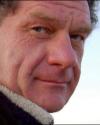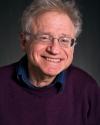
Nuclear theory addresses a wide range of questions ranging from the first-principles description of light nuclei via lattice gauge theory simulations of quantum chromodynamics (QCD), understanding aspects of nucleon structure, and exploring diverse properties including structure, phase transitions and dynamics of strongly interacting quantum many-body systems of all sizes, up to and including neutron stars. Research in this area utilizes tools from effective field theory, high-performance computing on leadership class computers, and current and future quantum computers. Research in nuclear theory in the UW Physics Department is carried out
in the Nuclear Theory Group (NTG).
The UW hosts the Institute for Nuclear Theory (INT), a national resource funded by the US Department of Energy and the University of Washington. The INT holds scientific meetings which attract hundreds of visitors annually and provides a collaborative environment for scientists to advance the frontiers of subatomic physics.
Research Strengths
- Effective field theory (Cirigliano, Beane, Kaplan, Savage)
- High energy processes (McLerran, Miller)
- Many body physics and nuclear fission (Bulgac)
- Nucleon properties and structure (Miller, Beane, Savage)
- Nuclear astrophysics (Reddy)
- QCD and lattice gauge theory (Beane, Kaplan, Savage)
Highlighted Resources
See also: Astrophysics, Cosmology & Gravitation






